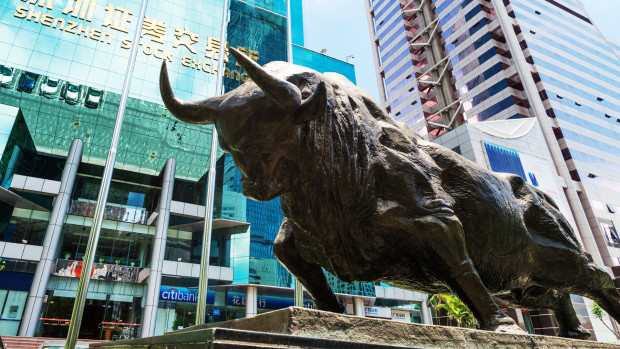
Goldman Sachs Group slashed its outlook for a near-term U.S. recession over the weekend, citing a markedly improved inflation backdrop and a tight labor market.
Goldman's chief economist, Jan Hatzius, said the bank sees a 15% chance of a U.S. recession over the next 12 months, down from 20% previously and hinted that the Federal Reserve has likely ended its 18-month cycle of rate hikes.
Hatzius also said the impact of the Fed's long run of rate hikes, which has lifted the central bank's benchmark lending rate to a 2007 high of 5.25% to 5.5%, will begin to fade into the end of the year, “before "vanishing entirely by early 2024.”
“First, real disposable income looks set to reaccelerate in 2024 on the back of continued solid job growth and rising real wages,” Hatzius said. “Second, we still strongly disagree with the notion that a growing drag from the ‘long and variable lags’ of monetary policy will push the economy toward recession.”
The Labor Department reported Friday that average hourly earnings grew by 4.3% last month, down from the 4.4% recorded in July but still largely in-line with both core inflation readings and Wall Street forecasts.
The wage data came alongside another solid, but by no mean spectacular, August employment report that showed 187,000 new jobs were created last month, firmly ahead of the Wall Street consensus forecast of a 170,000 gain, with the headline unemployment rate rising to 3.8%.
The Atlanta Fed's GDPNow forecasting tool, a real-time tracker of domestic growth, suggests the U.S. economy is growing at a 5.6% clip, a modestly reduced pace from the 5.9% it suggested late last month but still well ahead of the official 2.1% advance tallied over the three months ending in June by the Commerce Department
Last week, data from the Bureau of Economic Analysis showed Fed's preferred measure of U.S. inflation ticked modestly higher in August, while spending accelerated faster than forecasts as consumers continue to leverage their firmer employment prospects.
U.S. retail sales powered 0.7% higher last month, to a collective $696.4 billion, as higher gas prices and a boost from Amazon's Prime Day event underscored the ongoing strength of the domestic consumer, the Commerce Department reported on Aug. 15.
The closely tracked control group number, which excludes autos, building materials, office suppliers, gas station sales and tobacco and feeds into the government's GDP calculations, rose 1%, firmly ahead of analysts' estimates of a 0.2% gain.
- Action Alerts PLUS offers expert portfolio guidance to help you make informed investing decisions. Sign up now.







